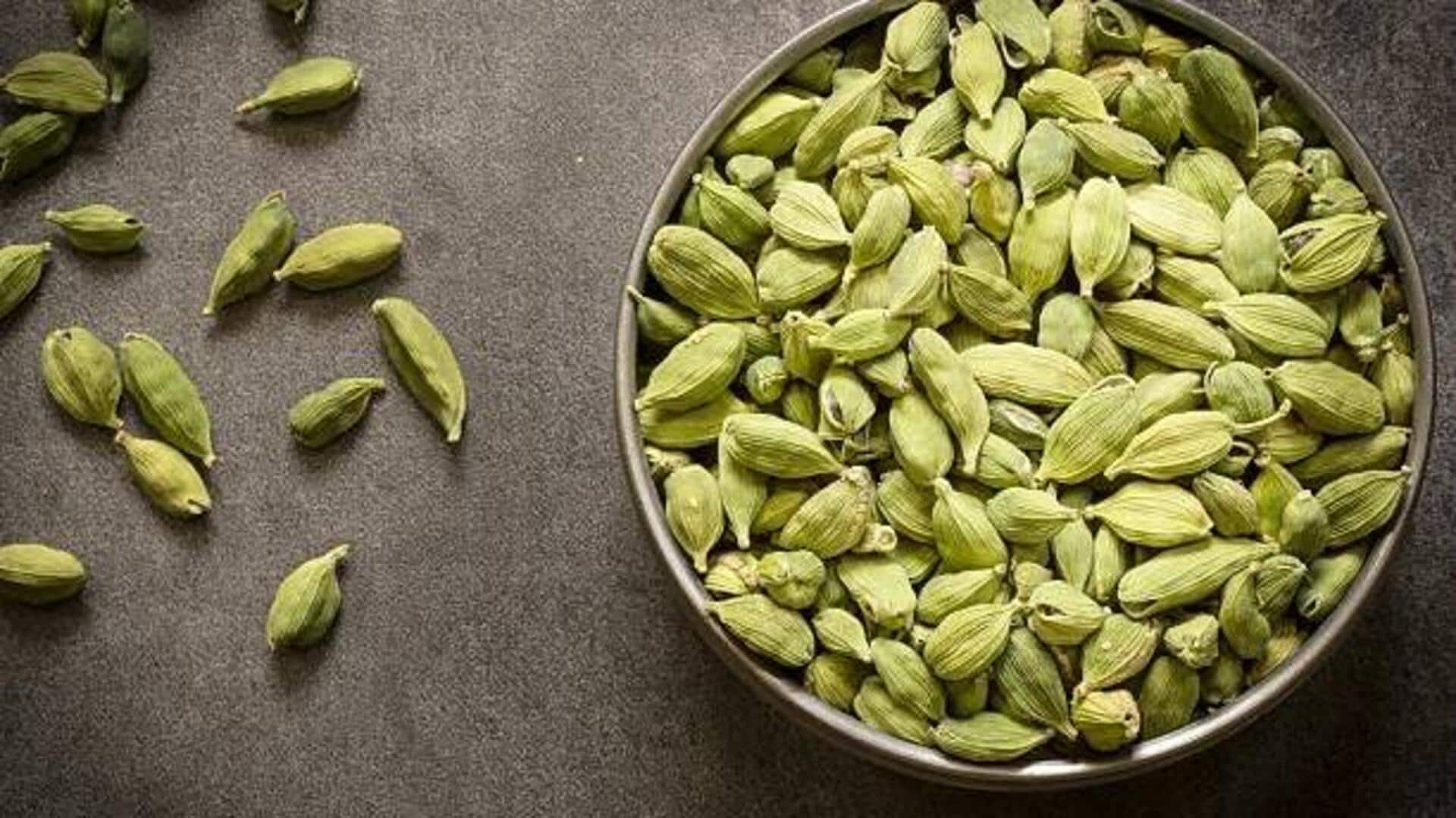
Why you should add cardamom to your diet
What's the story
Cardamom, an aromatic spice, has been used in traditional medicine for ages. It is said to assist digestion and contribute to a relaxed digestive process. Here, we take a look at how cardamom can be beneficial for digestion and provide some tips on how you can incorporate it into your daily life. Knowing what this spice can do for you may improve your digestive health naturally.
Digestive aid
Cardamom's role in digestive health
Cardamom contains essential oils that are believed to stimulate the secretion of digestive enzymes, thereby improving the breakdown of food. This may lead to improved digestion and absorption of nutrients. By promoting the action of enzymes, cardamom could potentially make you less bloated and uncomfortable after meals.
Inflammation reduction
Anti-inflammatory properties
The anti-inflammatory properties of cardamom are known to soothe the gastrointestinal tract perfectly. Inflammation in the gut can lead to a series of digestive problems, including discomfort and irregular bowel movements. By including cardamom in your diet, you may find relief in reducing inflammation. This, in turn, promotes a healthier digestive system by curbing common digestive problems.
Oxidative stress relief
Antioxidant benefits
Cardamom is rich in antioxidants that are essential in fighting oxidative stress in the body. This stress can damage cells and contribute to a number of health problems, including digestive issues. The antioxidants in cardamom neutralize harmful free radicals and protect gut cells from getting damaged. This, in turn, helps in maintaining overall digestive health efficiently.
Usage tips
How to use cardamom for digestion
Incorporating cardamom into your diet is pretty easy. You could add ground cardamom to teas or smoothies, or whole pods in cooking rice dishes or desserts for flavor and possible digestive benefits. If you're new to using this spice, start with small quantities as its strong flavor might take some getting used to.